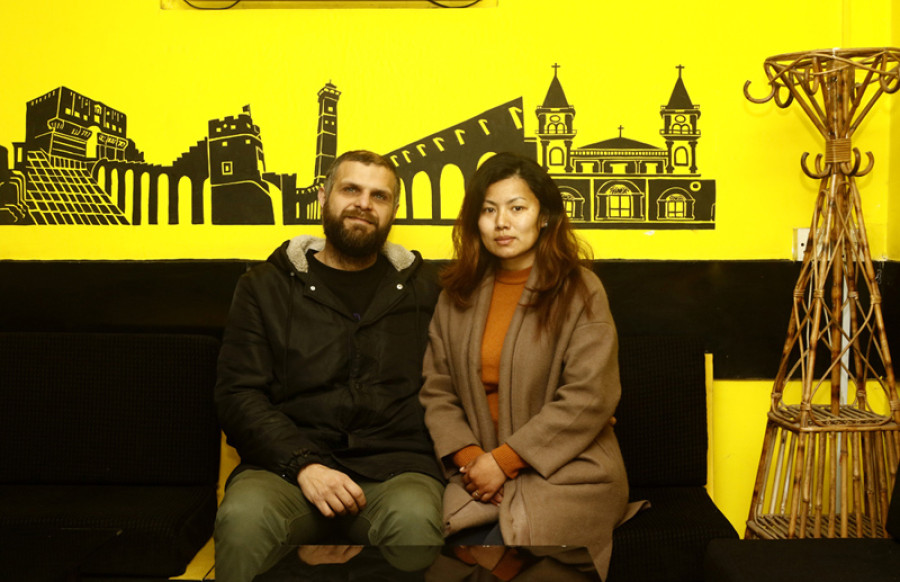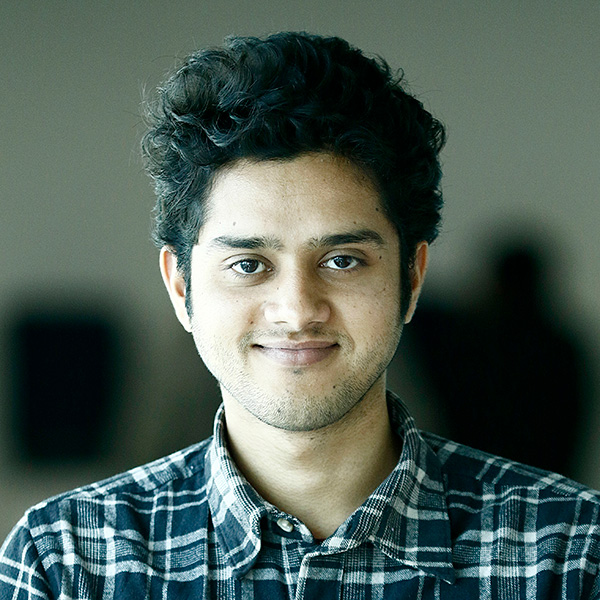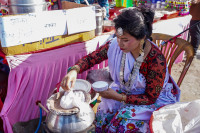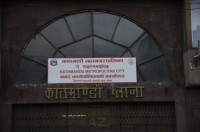Food
From Aleppo to Kathmandu: Meet the family behind Kathmandu's only Syrian restaurant
Among the hundreds of Nepali words that have been borrowed from Arabic, there’s one that has always remained fresh: taza, which just so happens to mean ‘fresh’.
Timothy Aryal
Among the hundreds of Nepali words that have been borrowed from Arabic, there’s one that has always remained fresh: taza, which just so happens to mean ‘fresh’.
For Bassel Shreiqi, a Syrian native, it was the obvious choice of name for his Pulchowk-based restaurant. Taza, the first and only restaurant in Kathmandu that serves Syrian food, came about as a labour of love between Shreiqi and his wife, Sangita Lama. Behind this restaurant is a tale of migration, love and a melding of disparate cultures.
Shreiqi was born and raised in Saudi Arabia to Syrian parents, who were working in the country. They lived in Saudi Arabia until Shreiqi was 10, before returning to their hometown in Aleppo, Syria.
Bassel completed his secondary-level education, majoring in Commerce, in Aleppo and then moved again to Dubai, in search of better employment opportunities.
This was in 2010, just about a year before the civil war broke out in Syria, as the government cracked down on peaceful demonstrations against Syrian President Bashar al-Assad, protesting increasing unemployment rates, corruption and shrinking political freedoms. Since 2011, the Syrian civil war has had devastating consequences, with more than 350,000 dead and more than 150,000 missing, according to the BBC.
Shreiqi started working at a retail shop in Dubai in 2010 and that same summer he met Sangita Lama.
Lama, a Nepali national who was in Dubai in search for greener pastures, was also working in the same retail shop. They fell in love, “like a normal couple meeting,” says Shreiqi. “It just happened. There’s nothing remarkable about it.”
Shreiqi and Lama got married and moved permanently to Kathmandu in 2014. Their restaurant, Taza, opened the same year.

Shreiqi is a man of few words but also a congenial host, which is celebrated in the many online reviews of his restaurant.
“I discovered Taza last year and it was probably the best thing I’ve discovered since I discovered Middle Eastern food (I love middle eastern food). The food has been consistently good since day one. The location is fantastic and I dont think there’s a better Maître D’ than Bassel in this entire town. Order the Taza Platter and make sure to get extra of that foodgasmic sauce,” says one review on Facebook.
Another reviewer notes in the online travel website TripAdvisor, “The food is fabulous, authentic, filling and good value-for-money. The Syrian [host] is [fond] of local and regional knowledge, and a foodie. Wonderful falafel platter, but actually all the menu options look great. Well-worth finding this place and spending a couple of hours out of the crazy traffic.”
Shreiqi refrains from calling himself a foodie but says he has a great love for both Syrian and Nepali cuisine.
“I eat a lot and love Nepali sweets. I also love dal bhat, and especially enjoy an elaborate thakali set,” he says, before launching into a rundown of the different varieties of Syrian food available at Taza.
There are the classics: hummus—which is a mixture of finely-crushed boiled chickpeas mixed with tahini, olive oil, salt, pepper and lemon—and falafel—ground chickpea balls deep-fried in olive oil. These are not just popular all over the world but are also the best-selling dishes at Taza, says Shreiqi.
However, Taza doesn’t offer what Bassel calls the “most authentic Syrian food”.
“In Syria, the food can be basically divided into two categories. One is restaurant food, like what we serve here. But the most authentic Syrian food is the one that mothers cook at home. But it takes a long time to cook and needs special ingredients that might not be easily available here,” he says.
Four years on, Taza is running well and has acquired a reputation for serving some of the best Middle Eastern food in town. They’ve even branched out to another location at the nearby Labim Mall. They plan to open another one in Thamel as well, says Shreiqi.
Shreiqi is proud of their Pulchowk restaurant, which has a location that is “better than all other places in town”. There is a large world map on one wall, painted in black against the yellow backdrop, filled with little pins. For every first person who visits the restaurant, Shreiqi asks them to put a pin on the map of their country. So far there are 115 pins on the map, from the Americas to Oceania.
“What drew me and my wife to this restaurant is perhaps my penchant to know about food and culture from across the globe,” says Shreiqi. “There are new perspectives and food cultures, and I love to talk about them with visitors.
Today, Bassel lives with his wife and six-year-old daughter in Swayambhu and says he’s comfortable in Nepal. After the war broke out, he’s visited Aleppo only once.
His brother, sister and mother still live there. His father passed away in 2015 of old age. His brother works at an organisation that rehabilitates the conflict-affected.
“I will never, ever regret the decision to come to this country,” says Shreiqi.




 16.12°C Kathmandu
16.12°C Kathmandu










